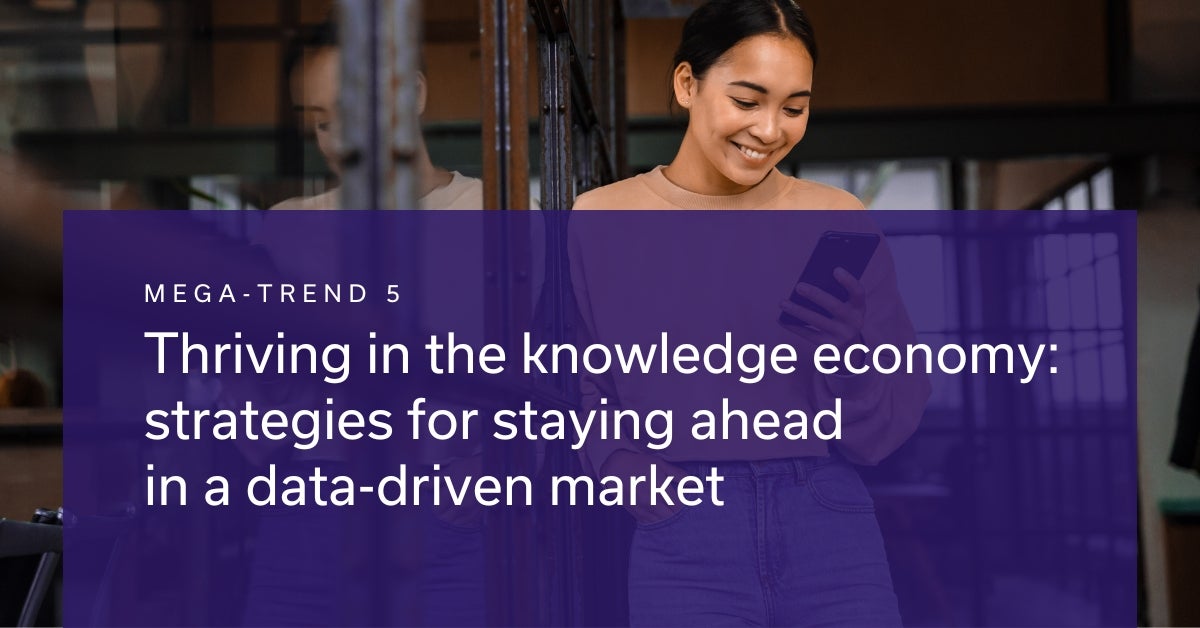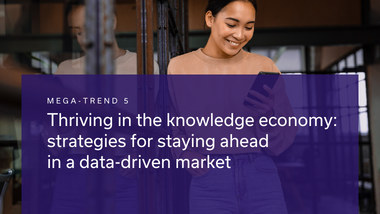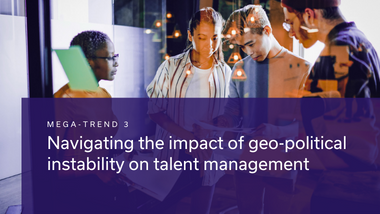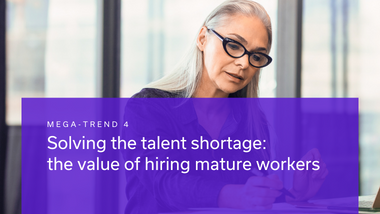Thriving in the knowledge economy: strategies for staying ahead in a data-driven market
Our fifth and final mega trend, technocracy, explores a phenomenon which often sparks fierce debate. The rise of information analytics, big data, and automation is driving a shift towards a knowledge-based economy. This change is rapidly permeating the labour market and business leaders will need to adapt to stay competitive and access the best talent.
The term ‘technocracy’ refers to a government model where policy makers are appointed or elected based on their technical skills or proven performance. The decision-makers are known as ‘technocrats’ and tend to be people with immense knowledge in science and technical expertise. Now, some may argue that many countries worldwide could benefit from having technical experts as leaders, instead of the “figure heads” many reveal themselves to be under closer inspection. However, technocratic governance is somewhat controversial and is commonly viewed by the West as inherently anti-democratic and, in some cases, dehumanising.
China is an excellent example of a technocratic government as 80% of government personnel have a technical degree. The leaders of the Chinese Communist Party are primarily professional engineers, elected based upon their skill set and not class or social status. Technocratic power is also validated by information, data and analytics, the collection of which provides Chinese citizens with a wealth of interconnected opportunities for communication, travel, and a host of other things. On the other hand, Chinese society is effectively governed as a surveillance state, in which the information collected by the government dictates your social acceptance score and sometimes directly controls what you can do and what you have access to.
Debate over the merits and drawbacks of this form of governance aside, Western governments are starting to adopt similar policy. A recent example of this was the UK government’s response to the Covid-19 pandemic during which time SAGE advice formed the basis for government policy. Therefore, regardless of the merits of technocracy, the impacts of the model are starting to permeate our societies and workforce.
So, what will the impact be? Rapid advancement of information analytics and the shift towards a knowledge economy means that information is power. It forms a key component of technocracy, and this creates opportunities for those with the skills to capitalise on this trend. We are likely to see continued convergence of functions in web-based environments, including recruitment software.
Examples of convergence already exist. Apple, for instance, first coined the phrase ‘There’s an App for that’ when it launched the App store in 2009. In fact, we’re now entering the next phase which will champion singular applications capable of carrying out all necessary social functions from one place. These Apps are already in existence and have become popular in China. Two such Apps are Alipay, an e-wallet that allows you to store cards and make payments, and WeChat, a multipurpose messaging and social media App which also allows users to buy goods, transfer money, plan holidays and much more.
In terms of the labour market, these Apps could potentially become integral to parts of the recruitment process such as holding CVs or e-profiles, and advertising for new roles. Looking to the future, businesses must aim to stay at the forefront of these developments as the likelihood is your organisation will want to take advantage of them. Those will skills in cybersecurity, data analysis, mobile and Web UX will be highly sought after as these new systems become mainstream.
Taking it a step further, these Apps may become capable of checking more than your CV. While we don’t expect government surveillance to become a feature - despite a report by the Citizen Lab revealing WeChat was conducting surveillance on files shared to train censorship algorithms - Apps may be able to submit application screening, validate a credit score, check criminal records, and book meetings or appointments. The possibilities are endless. Organisations, businesses, and individuals will need to manage and control their own data effectively and universally to unlock its value in terms of efficiency, opportunities and insights. Regardless of how these Apps develop, the recruitment landscape is changing.
To find out how you can prepare for and thrive in this changing climate, download our report which explores the five mega-trends impacting talent and skills in 2023 and beyond. In this guide, Phill Brown, our Practice Director – Data Analytics & Insights, will offer predictions for the future, as well as actions that businesses can take to adapt to each mega-trend and operate effectively in the new world of work.













